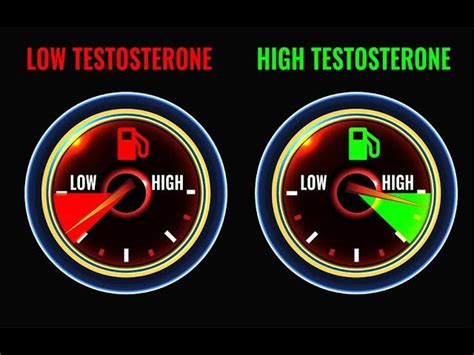Beyond basic fitness, how do men optimize hormone health for peak performance?

The Hormonal Edge: Why It Matters Beyond the Gym
For many men, the quest for peak physical and mental performance often begins and ends with regular workouts and a decent diet. While fundamental, this approach often overlooks a critical underlying factor: hormone health. Beyond merely building muscle or maintaining a healthy weight, optimizing your endocrine system is the true key to unlocking sustained energy, sharp cognition, robust libido, and overall vitality. It’s about moving from simply being ‘fit’ to truly performing at your best, day in and day out.
Understanding the Key Players in Male Hormone Health
Testosterone is undoubtedly the superstar of male hormones, influencing everything from muscle mass and bone density to mood, energy levels, and sexual function. However, a holistic view extends beyond testosterone to include other crucial hormones. Cortisol, the stress hormone, can wreak havoc if chronically elevated, suppressing testosterone and impacting sleep. Estrogen, often considered a female hormone, plays a vital role in men’s health too, and maintaining a healthy balance is key. Hormones like DHEA, thyroid hormones, and insulin also contribute significantly to metabolic health and overall well-being.

Pillar 1: Strategic Nutrition for Hormonal Support
What you eat directly impacts your hormone production and regulation. Prioritize a diet rich in whole, unprocessed foods. Healthy fats, found in avocados, nuts, seeds, and olive oil, are crucial for steroid hormone synthesis. Lean proteins support muscle maintenance and neurotransmitter function. Don’t shy away from complex carbohydrates, which provide energy and prevent cortisol spikes from low blood sugar. Conversely, minimize refined sugars, trans fats, and excessive processed foods, which can lead to inflammation and insulin resistance, both detrimental to hormone balance.
Pillar 2: Intelligent Exercise and Recovery
Exercise is a powerful hormone regulator, but the type and intensity matter. Strength training, particularly compound movements like squats, deadlifts, and presses, is a well-known booster of testosterone and growth hormone. High-intensity interval training (HIIT) can also be beneficial. However, overtraining or excessive chronic cardio can elevate cortisol, counteracting positive hormonal effects. Balancing strenuous workouts with adequate recovery and active rest days is paramount. Listen to your body and prioritize recovery just as much as the training itself.

Pillar 3: The Non-Negotiable Power of Sleep
Sleep is arguably the single most overlooked component of hormone health. Deep, restorative sleep is when your body repairs, regenerates, and synthesizes critical hormones. Chronic sleep deprivation significantly lowers testosterone, elevates cortisol, and impairs insulin sensitivity. Aim for 7-9 hours of quality sleep per night. Establish a consistent sleep schedule, create a cool, dark, and quiet sleep environment, and limit screen time before bed to optimize melatonin production.

Pillar 4: Mastering Stress and Mindfulness
In today’s fast-paced world, chronic stress is endemic, and its impact on hormones cannot be overstated. Sustained high levels of cortisol not only suppress testosterone but can also lead to abdominal fat gain, reduced immunity, and impaired cognitive function. Incorporate stress-reduction techniques into your daily routine: mindfulness meditation, deep breathing exercises, spending time in nature, yoga, or engaging in hobbies you enjoy. Effectively managing stress is a foundational step toward hormonal equilibrium.

Pillar 5: Lifestyle Adjustments and Environmental Factors
Beyond the core pillars, several lifestyle choices influence your endocrine health. Ensure adequate Vitamin D intake, ideally through safe sun exposure or supplementation, as it’s crucial for testosterone production. Limit alcohol consumption, which can negatively impact liver function and hormone metabolism. Stay hydrated, as dehydration can affect all bodily functions. Be mindful of environmental toxins, particularly xenoestrogens found in plastics and certain chemicals, which can mimic estrogen and disrupt hormonal balance. Consider using glass or stainless steel containers for food and drinks.

Monitoring and Professional Guidance
While lifestyle changes are powerful, understanding your baseline is crucial. Regular blood work can provide insights into your hormone levels (testosterone, free testosterone, estrogen, cortisol, DHEA, thyroid, Vitamin D). Consulting with a knowledgeable doctor or an endocrinologist can help interpret these results and guide you on a personalized optimization strategy, especially if significant imbalances are detected. Self-treatment with hormone supplements without professional guidance can be risky and counterproductive.
Conclusion: A Holistic Path to Peak Male Performance
Optimizing hormone health is not a quick fix; it’s a commitment to a holistic lifestyle. By meticulously addressing nutrition, exercise, sleep, stress, and broader lifestyle factors, men can move far beyond basic fitness. This integrated approach cultivates a robust endocrine system, paving the way for sustained peak physical and mental performance, enhanced vitality, and a higher quality of life. It’s about building a foundation for enduring health and performance from the inside out.









